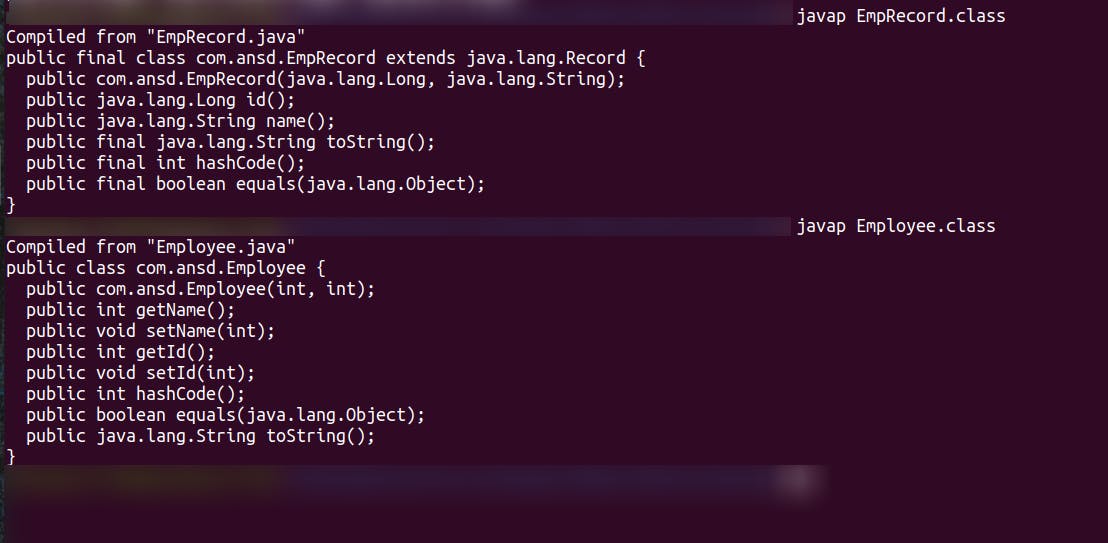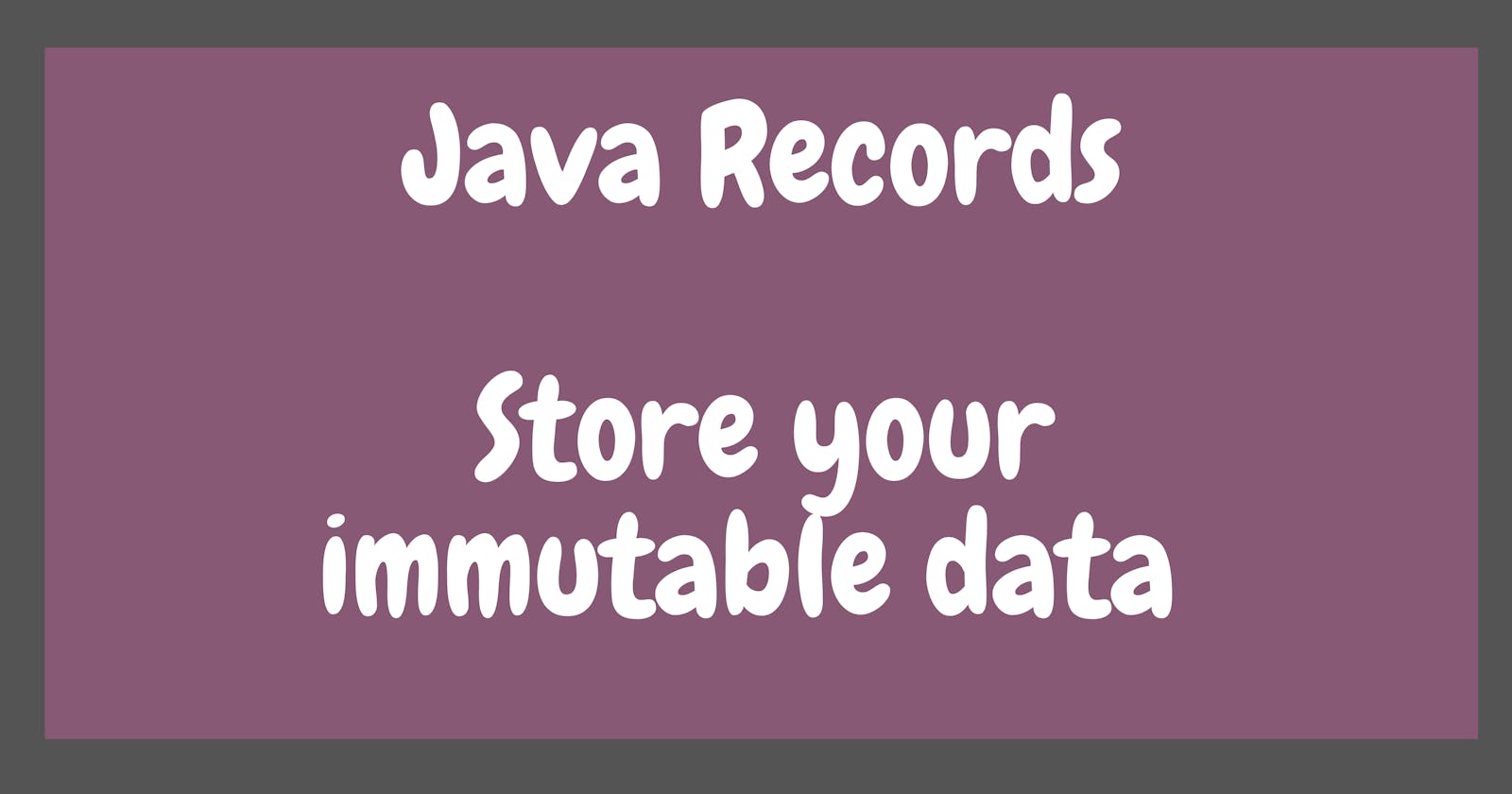Java language is known for being too much verbose which results in writing an ample number of lines to store immutable data fetched from a database or URL connection for processing. Java records(first introduced in J14 and finalized in J16) provide an easier way to declare data carriers.
Java Grammer
RecordDeclaration:
{ClassModifier} record TypeIdentifier [TypeParameters]
RecordHeader [SuperInterfaces] RecordBody
RecordHeader:
( [RecordComponentList] )
RecordComponentList:
RecordComponent { , RecordComponent}
RecordComponent:
{Annotation} UnannType Identifier VariableArityRecordComponent
VariableArityRecordComponent:
{Annotation} UnannType {Annotation} ... Identifier
RecordBody:
{ {RecordBodyDeclaration} }
RecordBodyDeclaration:
ClassBodyDeclaration CompactConstructorDeclaration
CompactConstructorDeclaration:
{ConstructorModifier} SimpleTypeName ConstructorBody
Java record is nothing but a special class that the compiler generates based on its declaration. All the auto-created Java record classes extend java.lang.Record object and are declared as a final class.
During compilation, the following are automatically created for a Java Record.
- For each component in the header, two members: a public accessor method with the same name and return type as the component, and a private final field with the same type as the component.
- A canonical constructor whose signature is the same as the header, and which assigns each private field to the corresponding argument from a new expression that instantiates the record.
- equals and hashCode methods which ensure that two record values are equal if they are of the same type and contain equal component values.
- toString method that returns a string representation of all the record components, along with their names.
Any of the above automatically created methods can be overridden if needed.
A sample class created by the compiler for a record class is shown below.

In case validation/processing needs to be done on the supplied parameters to a constructor, records provide an easier way to write the implementation part alone leaving out the assignments of parameters passed. This in turn saves time and avoids errors where a variable assignment gets missed or assigned wrongly.
record Range(int lo, int hi) {
Range {
if (lo > hi)
throw new IllegalArgumentException(String.format("(%d,%d)", lo, hi));
}
}
Similar to any Java type, records come with some restrictions on their usage. -Records cannot extend any class.
- Records cannot declare instance fields (other than the private final fields that correspond to the components of the record component list); any other declared fields must be static.
- Records cannot be abstract; they are implicitly final.
- The components of a record are implicitly final.
Further reading

